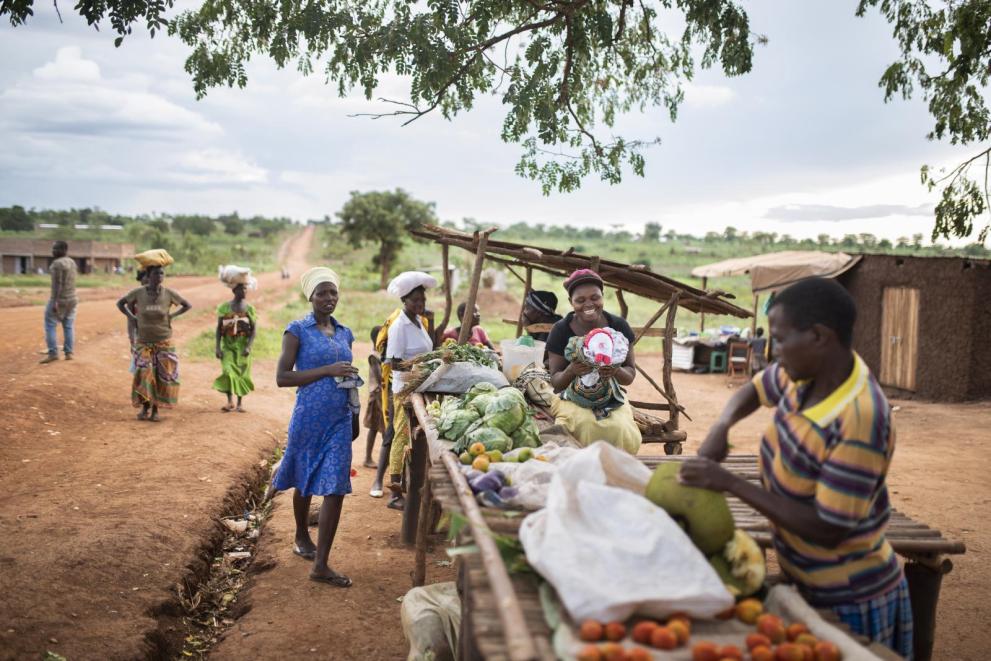
The European Union, through the Emergency Trust Fund for Africa, continues to support stability, resilience, job creation and migrant management in the Horn of Africa with the decision today to finance 14 programmes, including eleven new ones, with €204.9 million from the EU Emergency Trust Fund for Africa.
Safer paths for migrants
The Trust Fund continues to protect the most vulnerable migrants and to provide them with alternative solutions through the following contributions:
• A €10.3 million support package for the UNHCR’s Emergency Transit Mechanism (ETM) in Rwanda which provides people in need of international protection with a life-saving avenue out of Libya, with a view to their further resettlement.
• A top-up of €10 million for the return and reintegration of stranded migrants through the EU-IOM Joint Initiative.
Implementing the Global Compact on Refugees
The European Union continues to support pioneering work to implement the Global Compact on Refugees in the Horn of Africa with two new programmes and one top-up:
• The Kalobeyei Development Programme in Kenya will receive a top-up of €7.6 million so that it can continue to support both refugees and local communities and build mutually beneficial relationships through common social and economic activities.
• The Intergovernmental Authority on Development (IGAD), which leads the implementation of the Global Compact on Refugees in the Horn of Africa, will benefit from an institutional support programme worth €3 million.
• In Uganda, a €10 million programme for areas hosting refugees will help prevent and address deforestation and other detrimental impacts on the environment by promoting alternative energy sources.
National programmes
The Operational Committee of the Trust Fund adopted today the following national programmes:
In South Sudan:
• A new €16 million programme will help improve rural communities’ connectivity, resilience and food security through better infrastructure.
• €5 million will promote gender equality through national laws and policies, and foster the socio-economic and political participation of women and girls.
• A top-up of €1 million to the Technical Cooperation Facility (TCF) will ensure continuity of technical support for programmes in the country.
In Somalia:
• A €5 million top-up to the Enhancing Security and the Rule of Law programme supports security sector reforms in the country.
In Eritrea:
• A €30 million programme will help create sustainable agricultural jobs for women and young people, enhancing rural communities’ food security and resilience.
• €60 million will facilitate the second phase of the road rehabilitation project to reconnect Eritrea and Ethiopia.
• A €5 million programme will assist future evidence-based policy formulation in the country by strengthening national statistical and macro-economic systems.
In Sudan:
The EU will honour its promise to assist the civilian-led transitional authority in tackling the country’s social, economic and political challenges and in implementing the necessary reforms.
• The Prime Minister’s Office will be supported with a programme worth €7 million.
• A €35 million programme will bolster the country’s social protection system.
Background
The EU Emergency Trust Fund for Africa
The EU Emergency Trust Fund for Africa was established in 2015 to address the root causes of instability, forced displacement and irregular migration and to contribute to better migration management. EU institutions, EU Member States and other donors have so far allocated €4.6 billion to the Emergency Trust Fund for Africa.
With this additional funding, the Emergency Trust Fund now funds 224 programmes worth a total of €4.441 billion, including €1.611 billion for 88 programmes in the Horn of Africa, €2.023 billion for 101 programmes in the Sahel/Lake Chad region, and €807 million for 31 programmes in North Africa.
The Global Compact on Refugees
The Horn of Africa hosts an estimated 4.6 million refugees and asylum seekers – close to one sixth of all refugees and asylum-seekers worldwide. Under the leadership of the Intergovernmental Authority on Development (IGAD) and with support from the European Union through the Emergency Trust Fund, countries in the region are pioneering a transformative approach to refugee situations: the Global Compact on Refugees.
The approach aims to improve basic services and to increase employment opportunities for both refugees and their host communities, and to foster social cohesion by promoting community participation and ownership. Programmes also aim to secure better conditions for returnees and to support host governments’ capacity building efforts, with a focus on translating the objectives of the Global Compact into national policies. Implementation of the Global Compact on Refugees in the Horn of Africawill be showcased at the upcoming UN Global Refugee Forum on 17 and 18 December 2019.
Details
- Publication date
- 12 December 2019
- Region and Country
- Horn of Africa
- Thematic
- Other
